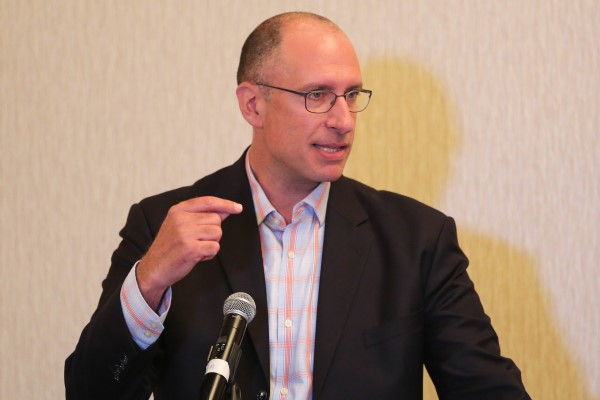One Parent's Paradox: Pushing Academics or Personal Competencies?
June 01, 2019
Academic glory doesn’t always pave the way for a well-lived life

Every time my two high school-aged kids give me their report cards or ask me to sign off on their course selections for the next year, I feel like a hypocrite. I want my kids to take challenging classes, and I value their academic success so I expect them to take some Advanced Placement classes. But I know from both research and my own experience that academic glory doesn’t always pave the way for a well-lived life.
When I was a superintendent, I stated publicly many times that if I had to choose between my kids being straight-A students and average people or being great people and average students, I’d choose the latter. (Admittedly, as a white male living in an affluent suburb, I have the luxury of being able to make that choice as my kids have access to enormous social capital and benefit from white privilege. There are loads of white people who graduated with average grades who were granted access to quality higher education options and had doors open for them postgraduation, while for many Latinx and black high school graduates, stellar grades are essential.)
Yet I have this gnawing sense that the same metrics I used as a superintendent to promote equity and high standards for all kids and that I use to push my own children to succeed are a narrow slice of the whole pie they’ll need to thrive in the future. And because I have little information about how my own children are being prepared for anything other than academics, I rely on what’s in front of me: lots and lots of homework and grades on report cards.
To add a layer of complexity to my internal debate, I’ve had a change of heart about Advanced Placement classes after seeing my own children’s experiences. I’ve long felt AP classes are too rote and based on memorization and regurgitation. Then the 2016 election happened. My daughter was taking the AP government course at the time. In my house, and when visiting with friends and family, we constantly discuss politics. I noticed she would pipe up about various political issues with a reference to some particular fact about how our government works. At one point, while walking the dog, she replied to something my youngest child said, “Well of course it’s that way, we have a bicameral system — duh.”
The teenage-girl snark couldn’t mask the content knowledge she’s amassed from being part of AP. I’ve seen the same thing happen with her appreciation for and knowledge about the environment through AP Environmental Science, and my older son, who’s one year behind her in high school, has an increasingly sophisticated view of our current political climate and the cable news debates through the lens of his AP government class.
My skepticism has turned into appreciation for the rich content they’ve learned, regardless of how they’re learning it. And truth be told, part of me appreciates the discipline they’ve developed by having to study incredibly hard to master that content, even when they’re sometimes miserable from the stress of learning how to juggle life as a teenager today
A Balancing Act
The problem we’re trying to solve in public education today is to graduate all children with the knowledge, skills and dispositions to embrace an increasingly complex world on their own terms. This requires that adults learn new ways of engaging students and helping them develop and practice the competencies they’ll need as adults: cooperation, collaboration, analytical thinking, problem solving, communication, empathy.
The development of these skills must complement the deep content knowledge and subject-area expertise that’s required to succeed today. I have no clue how my children’s schools are going beyond academics. The “stress busters” club, Friday puppy-petting during lunch and e-mails to parents and students about mindfulness seem pro forma, even if well-intended.
I don’t know if it’s fair for me to expect schools to show all that they’re doing academically while also attending to the human side of adolescent development. Given the orientation of American public education for the last generation that’s hinged solely on standardized test scores, perhaps it’s foolish of me to even ask. Moreover, while I like to think that I’ve played a small role in promoting social-emotional skills, student engagement and the importance of relationships, I’ve also used AP and standardized testing to organize school systems around equity.
When my own kids walk across the stage in their caps and gowns over the next few years, I know as a dad I’ll be proud of them for the people they’re becoming. But if their academic success is lagging
too much, I know I’ll have a tinge of remorse that maybe I didn’t push them hard enough or provide necessary supports. As a father, I can live with that paradox. As an educator, it’s a heck of a lot tougher.
About the Author
Joshua Starr, a former superintendent, is chief executive officer of PDK International in Arlington, Va.
Advertisement
Advertisement
Advertisement
Advertisement



